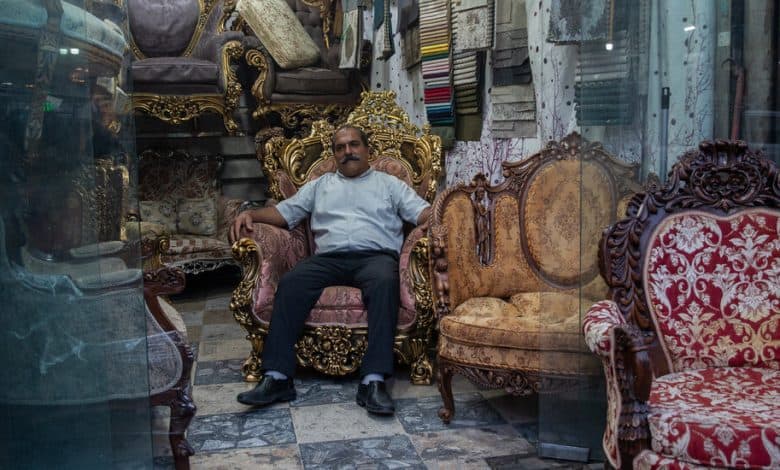Iranians’ Demand for Their Leaders: Fix the Economy

In the working-class neighborhood of Tehran surrounding Imam Hussein Square, the side streets and alleys are lined with secondhand stores and small repair shops for refurbishing all manner of household goods. But with little to do, most shopkeepers idle in front of their stores.
A 60-year-old man named Abbas and his son Asgar, 32, lounged in two of the secondhand, faux brocaded armchairs that they sell. Asked about their business, Abbas, who did not want his surname used for fear of drawing the government’s attention, looked incredulous.
“Just look down the street,” he said. “Business is awful. there are no customers, people are economically weak now, they don’t have money.”
After years of crippling U.S. sanctions that generated chronic inflation, made worse by Iran’s economic mismanagement and corruption, Iranians increasingly feel trapped in a downward economic spiral.
Virtually every person interviewed during six days of reporting in the Iranian capital described a pervasive sense of losing ground economically, of becoming window shoppers rather than buyers, of patching machinery used in factories because replacements are too expensive, of substituting lentils for lamb.